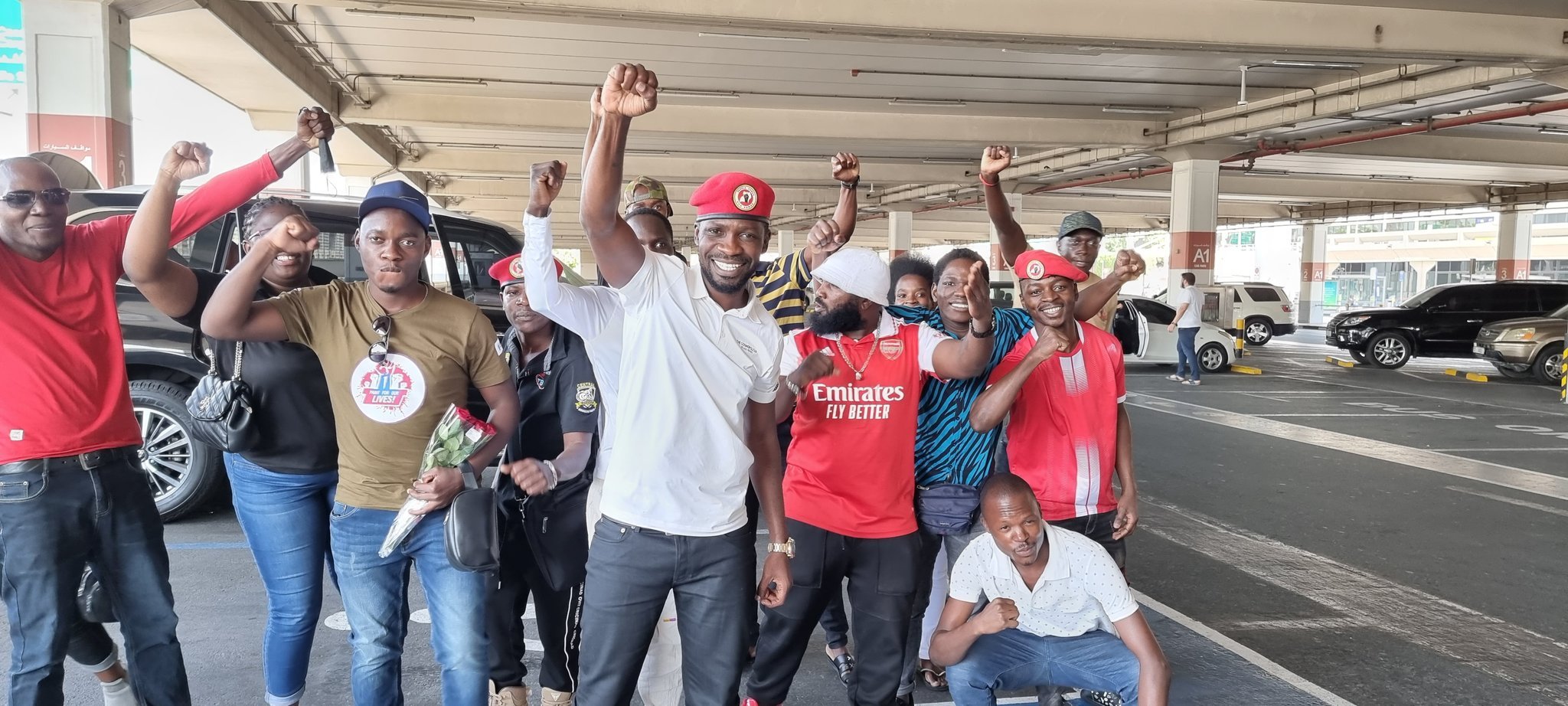Bobi Wine Saturday said his scheduled music show in Dubai had been blocked, blaming authorities back in Uganda for working “tooth and nail to ensure it doesn't happen.”
The musician cum politician traveled to the United Arab Emirate where he reportedly planned to hold a charity concert whose proceeds would be used to support some of the Ugandan migrant workers.
“Unfortunately our charity concert in Dubai has been cancelled! The venue owner has been instructed to cancel. The information available shows Ugandan authorities have been working tooth and nail to ensure it doesn't happen! The first attempt was to deny me entry, and now this!” the former presidential contender, real name Robert Kyagulanyi, tweeted on Saturday, hours after he was reportedly released from custody in Dubai.
Earlier, the National Unity Platform (NUP) leader tweeted saying he had been detained for hours and questioned about his party activities and family.
“Landed in Dubai at 8:30pm. It’s now 5am. I’ve been held & interrogated for 8hrs. They asked me about NUP, its leaders, their phone numbers, my family members & their contacts! I have all necessary travel docs. They’ve confiscated my passport & my phone. Am literary under arrest,” Mr Kyagulanyi tweeted at around 4:9am.US report faults Uganda over human trafficking
The UAE is also deemed a good trading partner for Uganda. It is the link between Uganda and the Middle-East, and an important centre for Ugandan exports destined for the Americas and Europe, as well as for Asia, specially, Japan and China. A recent Ministry of Gender report for the period 2016 and part of 2022 detailed that an average of 24,086 Ugandans leave Uganda annually in search of employment, especially to the Middle East. By Monitor Reporter, Daily Monitor






